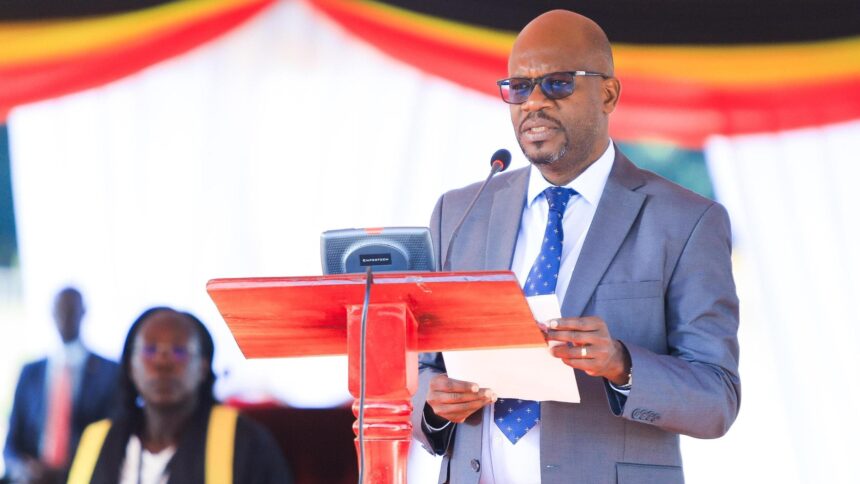Mityana South MP Richard Lumu of the Democratic Party has defended his controversial proposal to have Members of Parliament elect the Leader of Opposition, a move he claims will promote democracy and inclusivity within Uganda’s parliamentary system.
This comes after Parliament approved the tabling of a Private Member’s Bill that could change how the Leader of Opposition is chosen.
MP Richard Lumu sought to clarify his intentions behind the proposed bill, which seeks to alter the current practice of allowing the main Opposition Party to unilaterally select the Leader of Opposition. Under Lumu’s proposal, the main Opposition Party would nominate three candidates, from which the entire Opposition membership in Parliament would elect the Leader of Opposition.
“I am not trying to undermine the Opposition,” Lumu stated firmly. “My goal is to strengthen democracy and foster greater inclusivity within our parliamentary system. This bill is not about reducing the power of the main Opposition; it’s about expanding it and making the process more democratic.”
Lumu dismissed accusations that he is acting in alignment with the government or the President, calling such claims “shallow” and “myopic.” He emphasized that his proposal aims to enhance the parliamentary process, not to diminish it. “We were all elected to represent our constituencies, and we must consider what best serves our democracy,” Lumu argued.
Addressing speculation of personal conflicts, Lumu denied any animosity toward the current Leader of Opposition, Joel Ssenyonyi, or any intention to undermine his position. “This bill is not about any one individual,” Lumu explained. “If there are people with personal vendettas against Ssenyonyi, I am not one of them. I’ve known him for a relatively short time and have no reason to hold grudges.”
Lumu urged his critics to carefully consider the proposal before rushing to judgment. “Some may think we are taking away power from the main Opposition Party, but that’s not the case. The proposal actually seeks to empower the entire Opposition,” he said.
Drawing parallels with past efforts, Lumu noted that Medard Sseggona, an Opposition MP, had made a similar proposal during the 10th Parliament when the Forum for Democratic Change (FDC) was the largest Opposition party. “The FDC did not attack or malign Sseggona; they listened to him,” Lumu recalled. “Even though his motion ultimately failed, it was considered on its merits, and that is the democratic process we should follow.”
As the debate over the bill continues, Lumu called for a thoughtful, measured approach to the discussion, urging MPs and the public to evaluate the merits of the proposal based on its potential to enhance democracy within Uganda’s parliamentary framework.







